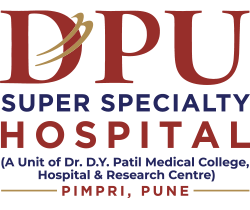Cardiology: All You Need to Know

What is Cardiology?
Cardiology is a field that studies and treats heart and blood vessel diseases. A person with a heart or cardiovascular disease may be referred to a cardiologist.
Several medical conditions can be diagnosed and treated in this field, including heart defects, heart failure, valvular heart disease, and electrophysiology. Internal medicine physicians who specialise in cardiology are known as cardiologists.
What Does Cardiology Involve?
Cardiologists undergo a comprehensive examination and review of the patient's medical history and physical examination before making a diagnosis. In addition to checking the patient's weight, heart and lung capacity, they may also conduct diagnostic tests on pulmonary blood pressure.
All types of heart surgery, such as angioplasties and heart valve procedures like valve replacements and congenital heart defect repairs, can be performed by an interventional cardiology physician (ICD).
Who is a Cardiologist?
A cardiologist is a medical professional who specialises in diagnosing and treating diseases affecting the cardiovascular system, which includes the heart and blood vessels. Cardiologists also educate their patients on how to maintain healthy heart habits.
Cardiologists are trained to diagnose and treat heart attacks, heart failure, disease of the heart valves, irregular heartbeats, and hypertension. A cardiologist can order electrocardiograms, echocardiograms, and CT scans (computed tomography) to determine the cause of the problem. According to the diagnosis, they may suggest medication, exercise programs, or cardiac catheterisations.
Types of Cardiologists
Cardiologists can be segmented into at least a dozen different categories according to their speciality. A cardiologist is an expert in various heart and vascular conditions, such as cardiac imaging and cardiac rehabilitation, among other areas of expertise. The following are the different types of cardiologists:
- Clinical cardiologist
- Heart failure specialist.
- Interventional cardiologist
- Cardio-oncologist
- Congenital heart specialist
- Cardiac imaging specialist
- Peripheral interventional cardiologist
- Preventive cardiologist
- Cardiac rehabilitation specialist
- Electrophysiologist
- Geriatric cardiologist
- Cardio-rheumatologist
- Sports cardiologist
- Critical care cardiologist
What Does a Cardiologist Do?
A cardiologist is a medical professional who, through screenings and checkups, can help prevent heart disease. They are trained to treat the following symptoms of heart conditions or heart diseases-
- Heart attacks;
- Heart disease (or coronary artery disease) occurs when blood vessels that bring nutrients to your heart are blocked;
- Deficiency in the heart's ability to pump blood leads to heart failure;
- Heart rhythms (or arrhythmia), when your heart beats too fast, too slow, or irregularly; and
- Valve problems occur when the heart fails to open or close properly.
Additionally, some cardiologists teach at universities and conduct research that contributes to developing new treatments and diagnostic approaches for heart problems.
What Diseases Do Cardiologists Treat?
Cardiologists specialise in diagnosing, treating, and preventing various cardiovascular diseases. Some of the most common conditions that cardiologists treat are as follows:
- Atrial Fibrillation
- Ventricular Fibrillation
- Congenital heart disease
- Coronary heart disease
- Congestive heart disease
- Hypertension or high blood pressure
- High cholesterol
- Pericarditis
- Stroke
What Kind of Tests Does a Cardiologist Do?
A cardiologist can order the following tests to help with the diagnosis. Still, some of these tests could be performed by other healthcare providers:
- Cardiac catheterization
- X-ray of the chest
- MRI of the heart (magnetic resonance imaging)
- Cardiac CT scan (computed tomography)
- Coronary angiography (CA)
- Stress examinations
- Electrocardiogram (ECG) (EKG)
- Echocardiogram
- Transesophageal echocardiogram (TEE) (TEE)
- Event monitoring
- Holter monitor
- Implanted loop recorder/implantable event recorder
When Would I Need a Cardiologist?
A cardiologist may be needed if you're experiencing symptoms like dizziness, palpitations, or shortness of breath. It's possible that your cardiologist will keep working with you for a long time as they keep an eye on your health.
How To Choose a Cardiologist?
A patient's primary care physician may suggest a cardiologist, but patients have the option of finding their own. Choosing a cardiologist who communicates with you in a way that works for you and has a good track record is critical.
Consult with another doctor if you have any doubts about the necessity of a treatment your cardiologist recommends or thinks is too risky or expensive.
Cardiology Related FAQs
Are you or a loved one curious about heart health? Whether you have general inquiries about heart health or specific questions about Cardiology Services, the FAQ will assist you in locating the information you seek.
Here is a list of frequently asked questions about cardiology:
Q1. What To Expect From Your Appointment With A Cardiologist?
Cardiologists review your medical history and conduct physical examinations. During this process, you'll be checked for high blood pressure, high cholesterol, and other risk factors for heart disease.
Q2. What is Preventive Cardiology?
Preventive cardiology aims to identify early signs and risk factors of cardiovascular disease to reduce the likelihood that a person will develop cardiovascular disease.
Preventive cardiology can be divided into primary prevention and secondary prevention.
Q3. What kind of disorders do your cardiovascular surgeons treat?
Our cardiovascular surgeons are experienced in repairing and replacing heart valves. Moreover, we also perform widening or bypassing of blocked arteries to the heart.
We can treat the following disorders and injuries:
- Problems in aneurysms
- Heart failure
- Coronary artery disease
- Irregular heart rhythm or blood flow
Q4. Which basic tests are available at your facility for primary cardiac evaluation?
We conduct a wide range of non-invasive cardiology tests. They include,
- Transthoracic Echocardiography with colour Doppler - 2D, 3D
- Transesophageal ECHO - 2D, 3D
- Saline Contrast ECHO
- Stress ECHO - Dobutamine Exercise
- Paediatric Congenital ECHO
- Electrocardiogram (ECG)
- Holter Monitoring
- Computerised Treadmill Test (TMT)
- Head Up Tilt Test (HUTT)
- 24 hr Ambulatory BP Monitoring
Q5. What treatments do you provide for patients with endovascular diseases?
We offer international-grade treatments for endovascular diseases such as,
- Renal Angiography & Angioplasty
- Carotid Angiography & Angioplasty
- Peripheral Angiography & Angioplasty
- Thoracic & Abdominal Aortic Aneurysms
- IVC Filter Implantation
Summary
The cardiologist will ask you about your symptoms and lifestyle habits when you visit them. Additionally, they may conduct a series of tests to evaluate the presence of particular cardiovascular issues.
These tests will determine your overall cardiovascular health. Following an analysis of your test results, your cardiologist will diagnose your condition and recommend a treatment plan. Cardiologist treatment plans may include prescriptions or recommendations regarding diet and lifestyle modifications. Severe conditions may necessitate varying degrees of heart surgery.
Request an Appointment at DPU Hospital
Are you suffering from any cardiovascular condition? Worry not! We at DPU Hospital Pimpri, Pune have got you covered with our comprehensive treatments to help you feel your best.
Call at 020 6711 6499 to schedule an appointment with our expert cardiologists and take the first step toward heart-healthy life!








